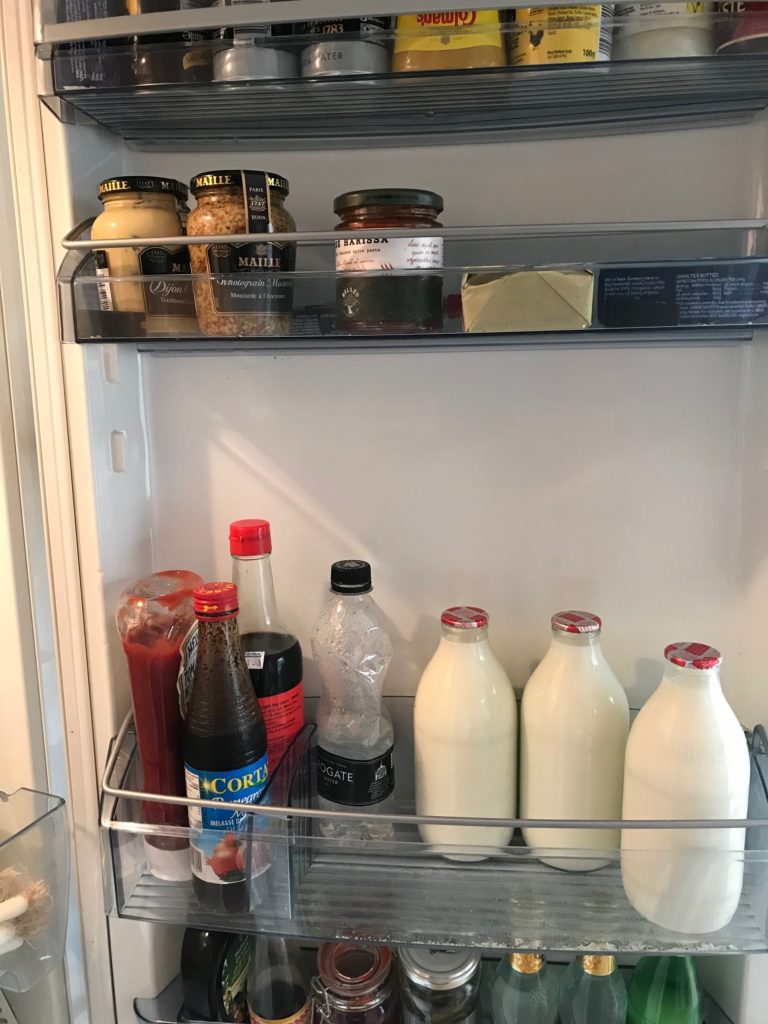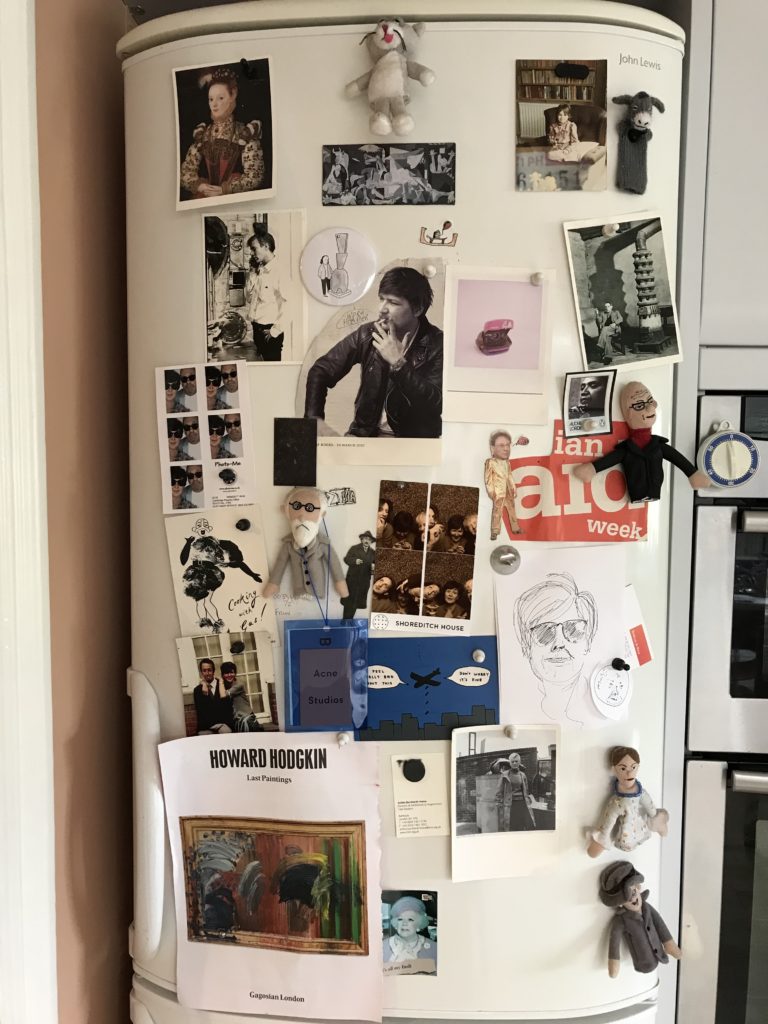In our series Writers’ Fridges, we bring you snapshots of the abyss that writers stare into most frequently: their refrigerators.
Kathy is conducting an audit of her fridge. She has just had an email. A man she knows, B, who is truly among the most beautiful men ever to live, is in hospital with an inoperable brain tumour. The symptoms had begun, the email said, two days after she had last seen him in May. B with his doe eyes, B who had set himself against death, who had been a hospital carer for so many years, was himself about to die. Once, they had been about to meet when she mentioned casually that she had a cough. No, B said. I can’t see you. I am looking after a neighbour who is immunocompromised. Somewhere on her laptop there was a photo of him when he was very young and recently bereaved, his arm around a cheetah. They looked the same, like blood relations.
Anyway, the fridge. Kathy eats but doesn’t cook. She regards the interior uneasily. In the early 80s she had a comic book about a person called Chilly Billy, who lived inside a fridge. It was Chilly Billy’s job to turn the small interior light on. Apparently if you crept up very quietly you might beat him to it. For many years Kathy travelled on silent feet across the kitchen lino but she has never caught the fridge unlit.
The volume of produce is alarming. This is a pre-Brexit fridge. After 29 March 2019, the photograph she’s just taken on her husband’s phone will be a sad reminder of the days in which ordinary people had two kinds of butter and seven kinds of cheese. One of them is actually called Essential French goat’s cheese. They’d laugh about that later, in the apocalypse, chowing down on their rat paté, their squirrel fritters.
There’s been a lot of pressure lately to eat strawberries, now she knows why. Pomegranate molasses, Superior Light Soy Sauce, three pints of milk. Parma ham, Greek yoghurt, Meldi preserved lemons. Food that has travelled across borders, food that needs visas and will soon be deported. Mirabelle d’alsace. Moorish Garlic Aioli with Sicilian Lemons. Once they were a cosmopolitan people and now they are citizens of nowhere, the no-deal nation, isolated and at sea, strictly their own fault. Apple jelly, broad bean paste, Oxford marmalade, lime chilli chutney. A bottle of Moët, a sourdough starter.
Kathy has no part in any of this. The fridge is her husband’s domain. He is the emperor of the kitchen, he guides the food into the house and onto her plate. In return she has decorated the fridge’s exterior with a picture of Barbara Cartland and a photograph of her, Nelia and Merlin in the booth at Shoreditch House, eating apples and looking winsome. Beckett by a bin. A finger puppet of Freud with an Acne label looped around his neck. A picture torn from a newspaper of Rainer Werner Fassbinder smoking a cigarette. She has scribbled a speech bubble by his mouth, which says: WORK HARDER. It is possible to say that Fassbinder worked himself to death, if work includes partying, as sometimes it must. Fuck, B. The fridge is a bulwark, it stands against death.
Olivia Laing’s latest book, Crudo, is narrated by a 21st century version of Kathy Acker.
See the other writers’ fridges here.
from The Paris Review https://ift.tt/2NN6rEc




Comments
Post a Comment